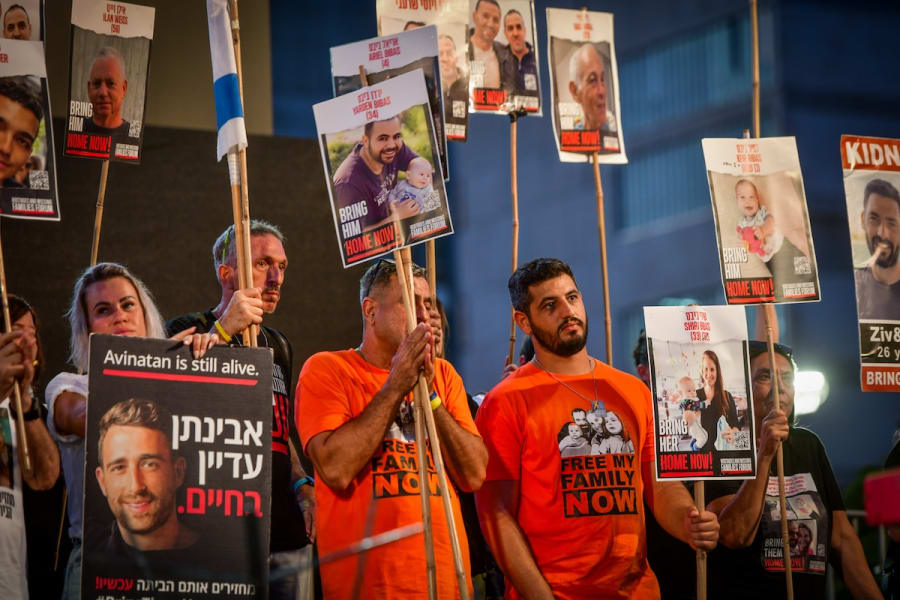Hamas said ‘no’ to President Biden’s hostage deal proposal – What happens next?
Senior Israeli official makes clear: ‘Israel would not commit to ending the war in advance, before the release of all hostages’

More than eight months into the war, hostage release negotiations seem to be stalled. Hamas and other terrorist organizations are still holding 120 Israeli hostages in Gaza. They refused every Israeli and international proposal so far to release them in exchange for a ceasefire, including the outline presented by U.S. President Joe Biden last month, approved by the UN Security Council.
Israel considers Hamas’ latest response as an “absolute” rejection of a deal, dubbed by Biden as a ‘Three-phase proposal for durable peace in the Middle East.’ According to a senior Israeli official involved in the negotiations, “Hamas has made substantial changes to dozens of clauses in the outline.”
The official was quoted by Ynet News as saying that “the mediators should work on promoting negotiations between the two sides, solely based on the outline that was approved by the UN Security Council and President Biden.”
“There can be no negotiations over any other proposal, which Israel has already approved. The proposal includes two critical components: a cease-fire and an end to the war, and they must be agreed upon through this specific proposal," the official added.
One of the major gaps in the negotiations appears to be the definition of a ceasefire, including how and when it would be implemented by Israel. The official explained that in light of Hamas’ pattern of violating past agreements, Israel would not agree to make any commitment in advance to ending the war prematurely.
"Israel is not ready to agree to a permanent ceasefire in advance," he stated. "But it is ready to advance towards a permanent ceasefire, meaning an end of the war.”
The reasoning behind it is that Israel would have to maintain some leverage to ensure that all hostages – alive and deceased – will be released by Hamas within the proposed framework.
Israel’s insistence is meant to avoid a scenario it experienced in late November, in which Hamas released hostages for seven consecutive days and failed to deliver on the eighth day. The war then ensued after Hamas renewed fire and Israeli forces responded.
Last Tuesday, Qatari Prime Minister Mohammed bin Abdulrahman Al Thani delivered Mossad Chief David Barnea with Hamas’ reply to the proposal. Israel claimed that the terror group changed it “entirely,” in what was perceived as a clear rejection of the original proposal.
U.S. Secretary of State Antony Blinken accused Hamas of the failure of the latest endeavor to release the hostages, saying on Wednesday, “Hamas could have answered with a single word – yes.”
Nevertheless, Blinken did not express complete frustration from the hold-up in negotiations, adding that “some of the changes are workable. Some are not.”
Meanwhile, reports in Arabic media outlets claimed the Biden administration is currently stalling hostage deal negotiations intentionally until Israel announces it has completed its ongoing military operation in the southern city of Rafah.
With or without a hostage release deal, Prime Minister Benjamin Netanyahu continues to insist that Israel’s war objectives have not changed since Oct. 7 and will be achieved. Those include the destruction of Hamas' military and governing capabilities, the return of all of our hostages, making certain that terrorists in Gaza will never again constitute a threat to Israel, and the return of Israeli citizens securely to their homes in both the north and the south.
We recommend to read:

The All Israel News Staff is a team of journalists in Israel.














